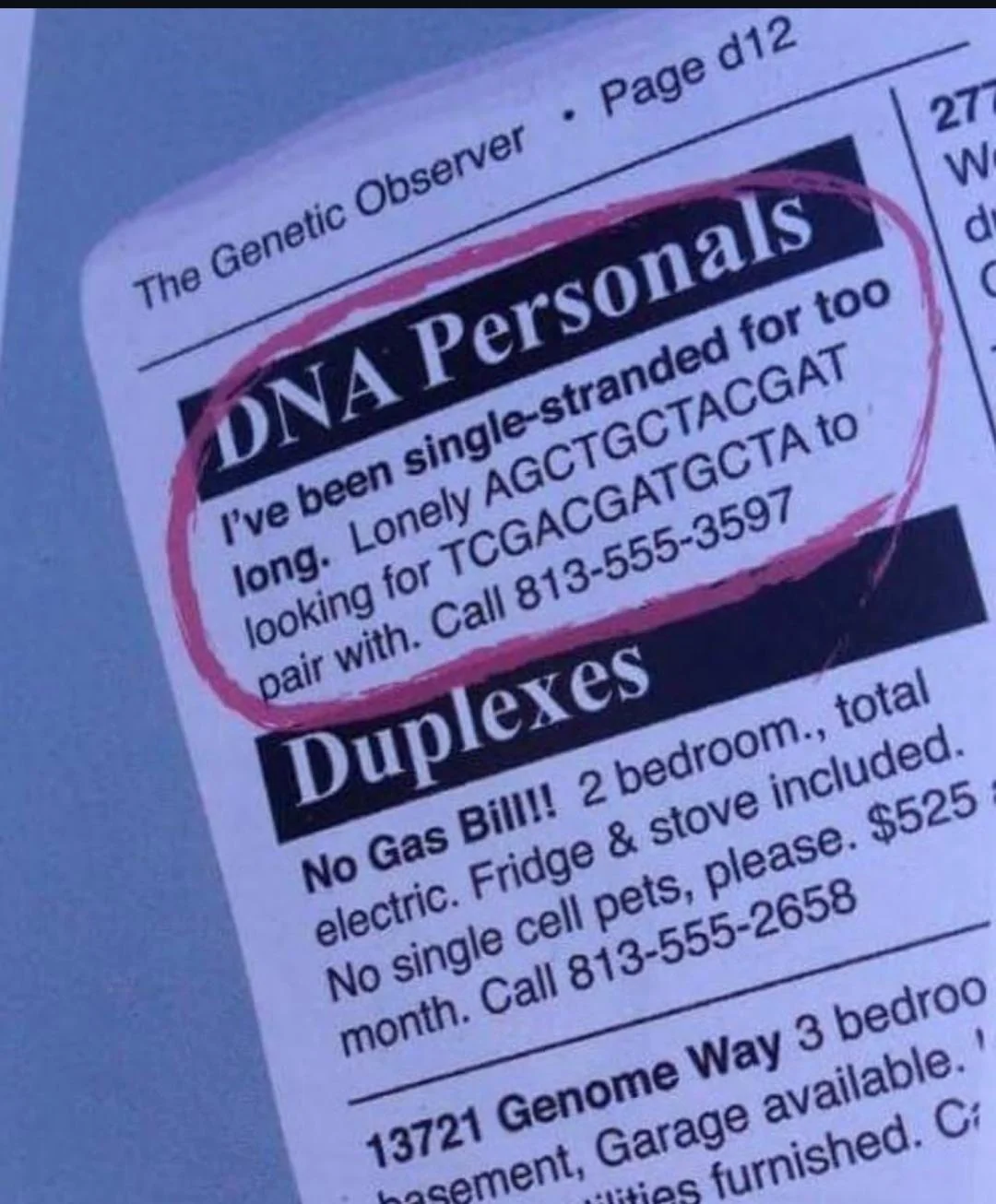this post was submitted on 12 Nov 2024
303 points (99.3% liked)
Science Memes
11637 readers
726 users here now
Welcome to c/science_memes @ Mander.xyz!
A place for majestic STEMLORD peacocking, as well as memes about the realities of working in a lab.

Rules
- Don't throw mud. Behave like an intellectual and remember the human.
- Keep it rooted (on topic).
- No spam.
- Infographics welcome, get schooled.
This is a science community. We use the Dawkins definition of meme.
Research Committee
Other Mander Communities
Science and Research
Biology and Life Sciences
- [email protected]
- [email protected]
- [email protected]
- [email protected]
- [email protected]
- [email protected]
- [email protected]
- [email protected]
- [email protected]
- [email protected]
- [email protected]
- [email protected]
- [email protected]
- [email protected]
- [email protected]
- [email protected]
- [email protected]
- [email protected]
- [email protected]
- [email protected]
- [email protected]
- [email protected]
- [email protected]
- [email protected]
- !reptiles and [email protected]
Physical Sciences
- [email protected]
- [email protected]
- [email protected]
- [email protected]
- [email protected]
- [email protected]
- [email protected]
- [email protected]
- [email protected]
Humanities and Social Sciences
Practical and Applied Sciences
- !exercise-and [email protected]
- [email protected]
- !self [email protected]
- [email protected]
- [email protected]
- [email protected]
Memes
Miscellaneous
founded 2 years ago
MODERATORS
you are viewing a single comment's thread
view the rest of the comments
view the rest of the comments

Wait wait. What would happen if a long half-strand of DNA tried to pair with another but there was one letter wrong in the middle?
Something called a "lesion" around a base mismatch, basically a bubble in the strand pairing. It can introduce kinks in the helix, and generally is the result of mutation in one strand.
If that's how DNA worked, I imagine it just wouldn't pair, but that's not how DNA works. However there can be and are many mistakes in the transcription and translation of genes, they're called mutations and they're the mechanical cause of cancer. The kind of spontaneous mutation your imagining is unlikely to lead to cancer without other contributing factors, and the body has numerous control and correction mecahnisms, but there are billions of base pairs (i.e. A—T is one base pair) in each cell of the body getting transcribed and translated over and over and over, so quite a few mistakes get through.
It is how DNA works in the case of PCR, for example. The denaturation cycle splits double stranded DNA into individual single strands, which can be thousands of base pairs long. Primers are short sequences that bind to these single strands. If there are only one or two mismatches, the primer can easily bind to the wrong part of the DNA strand, if the temperature during the annealing step is low enough. This causes messy gels and incorrect DNA products in the PCR.
In some cases, if the temperature is very low, the primer can bind to sequences with many mismatches. This results in the scientist crying and finding god.
Alas, it could never be